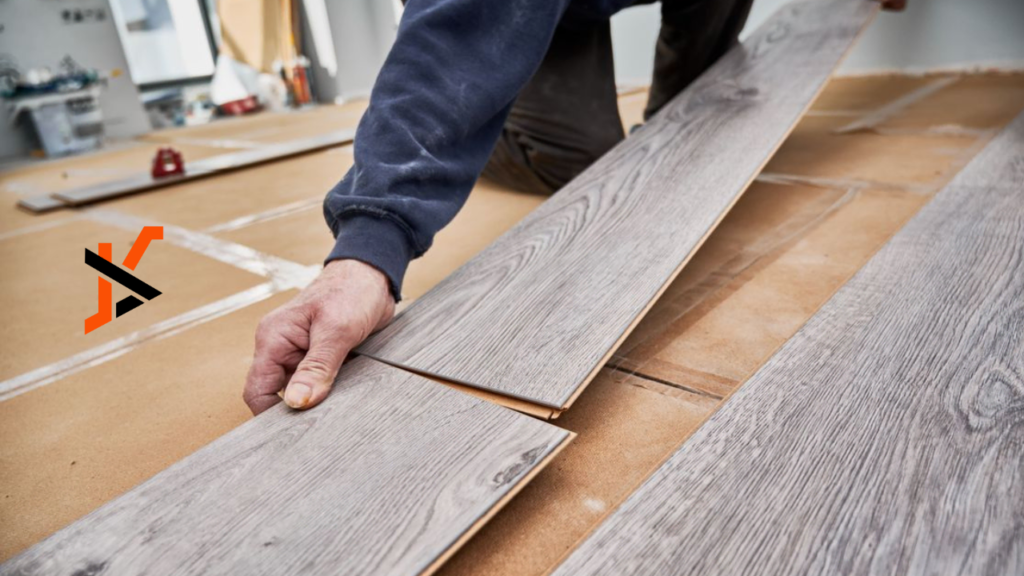Vinyl vs. Laminate Flooring: Pros and Cons for Homeowners
Choosing the right flooring for your home can be challenging. Two popular options are vinyl and laminate flooring. Here is a detailed comparison to help you decide.
What Is Vinyl Flooring?
Vinyl flooring is a synthetic material made from PVC (polyvinyl chloride). It is known for being durable, water-resistant, and low maintenance. Vinyl is available in planks, tiles, or sheets, offering flexibility to suit various spaces and designs.
What Is Laminate Flooring?
Laminate flooring is made from a high-density fibreboard (HDF) core topped with a photographic layer that mimics wood or stone. It is an affordable option that combines aesthetics with practicality. Affordable laminate flooring is especially popular among homeowners looking to enhance their interiors without overspending, but it’s less resistant to water.
Pros & Cons of Vinyl Flooring
Pros of Vinyl Flooring
Vinyl flooring is completely waterproof, making it ideal for areas prone to moisture, such as kitchens and bathrooms. It is highly durable and can withstand heavy foot traffic without significant wear.
Maintenance is simple, requiring only regular sweeping and occasional mopping. Vinyl also provides a softer feel underfoot and is available in various designs, from wood-like finishes to stone patterns. Installation is straightforward, especially with peel-and-stick or click-lock options.
Cons of Vinyl Flooring
Vinyl flooring is not environmentally friendly due to its plastic composition, which makes recycling difficult. Over time, it may fade when exposed to prolonged sunlight. Heavy furniture or sharp objects can cause dents. Additionally, some vinyl products emit a chemical smell initially, though this diminishes over time.
Pros & Cons of Laminate Flooring
Pros of Laminate Flooring
Laminate flooring offers an affordable way to achieve the look of hardwood without the high cost. It is scratch-resistant and suitable for homes with pets or children. Installation is quick and easy with its click-lock systems. The photographic layer provides a wide range of realistic designs and patterns. It is also low maintenance and does not trap dirt or dust easily.
Cons of Laminate Flooring
Laminate flooring is not waterproof, which means exposure to water can cause warping or bubbling. It is hard underfoot and may not provide the comfort some homeowners desire. Its lifespan is shorter compared to vinyl, especially in high-traffic areas. Like vinyl, it is not environmentally friendly and contains chemicals that make it challenging to recycle.
When to Choose Vinyl Flooring
Vinyl flooring is a good choice for households with children or pets due to its durability and resistance to spills. It is ideal for spaces prone to moisture, such as bathrooms, kitchens, or basements. If you prefer low-maintenance flooring that can handle daily wear and tear, vinyl is a reliable option.
When to Choose Laminate Flooring
Laminate flooring is suitable for homeowners looking for affordable laminate flooring that mimics the appearance of hardwood. It works best in dry spaces like living rooms or bedrooms. Its scratch-resistant surface makes it a practical choice for areas with frequent furniture movement or pet activity.
Tips for Choosing Flooring
- Set a Budget: Determine your budget to help narrow down your flooring options, as both vinyl and laminate come in a range of prices.
- Assess Foot Traffic: Consider the activity level in each room—vinyl is more suitable for high-traffic areas, while laminate works better in less frequented spaces.
- Evaluate Moisture Levels: For rooms with high moisture, like kitchens or bathrooms, vinyl is the better choice. Laminate is ideal for dry spaces such as bedrooms or living rooms.
- Choose a Design: Select a style that complements your home’s interior, as both flooring types offer a variety of designs and patterns.
- Focus on Durability: If you need flooring that can withstand heavy use or frequent furniture movement, prioritize vinyl for its resilience or laminate for its scratch resistance.
Final Thoughts
Vinyl and laminate flooring each offer unique benefits. Vinyl is best for durability and moisture resistance, while laminate is an affordable and stylish choice for dry spaces. Evaluate your home’s specific needs to make an informed decision about which flooring is right for you.
You can turn your flooring dreams into reality with vinyl flooring Manchester. Choose from a range of modern, durable, and moisture-resistant options designed to impress!
People Also Ask
Is vinyl flooring better than laminate flooring?
The choice between vinyl and laminate flooring depends on your needs. Vinyl is more durable and moisture-resistant, making it ideal for high-moisture areas like kitchens and bathrooms. Laminate is more affordable and can mimic the look of wood, making it a great choice for dry spaces like living rooms and bedrooms.
Can laminate flooring be installed in bathrooms or kitchens?
While laminate flooring is not waterproof, it can be installed in dry areas like living rooms and bedrooms. It is not recommended for high-moisture areas like bathrooms and kitchens, as water can cause warping and damage over time.
How long does vinyl flooring last?
Vinyl flooring can last anywhere from 10 to 20 years, depending on the quality of the material and the amount of foot traffic. Regular maintenance, such as cleaning and avoiding sharp objects, can extend its lifespan.

